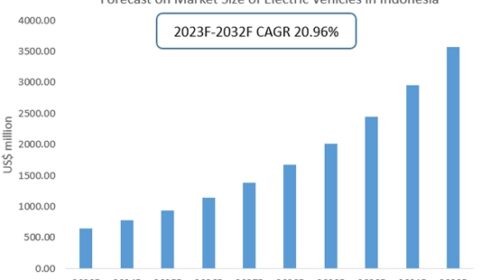Emerging Southeast Asia Electic Vehicle Market Outlook 2024 and Beyond
Electic Vehicle Market Overview
The electric vehicle market in Southeast Asia is experiencing a transformative shift, with governments, businesses, and consumers alike embracing sustainable mobility solutions. As we navigate this dynamic landscape, it’s crucial to delve into key aspects shaping the region’s EV market.
Government Policies: Regulate and Support: Government policies play a pivotal role in steering the electric vehicle market. In the Philippines, for instance, the government has implemented policies aimed at regulating and supporting the EV industry, creating a conducive environment for manufacturers and investors (source: CRI Report – Philippines Electric Vehicle Industry Research). Similar trends are observed in Indonesia and Vietnam, where strategic policies are fostering the growth of the electric vehicle sector (source: CRI Report – Indonesia Electric Vehicle Industry Research; Vietnam Electric Vehicle Industry Research).
Local Market Demand Trend: The demand for electric vehicles is on the rise across Southeast Asia. Consumers are increasingly recognizing the environmental benefits of EVs, leading to a surge in demand. In Vietnam, a growing acceptance of electric scooters is indicative of changing consumer preferences (source: VnExpress – “Electric scooters conquer Vietnam’s streets”).
1. Philippines:
- Growing Interest: The Philippines is witnessing a growing interest in electric vehicles, driven by environmental awareness and the need for sustainable transportation solutions. The government’s push for cleaner energy sources is influencing consumer choices.
- Urban Congestion Solutions: With increasing urban congestion and pollution concerns, there is a rising demand for electric vehicles, particularly electric scooters and compact electric cars, in urban centers.
2. Indonesia:
- Government Initiatives: Indonesia’s electric vehicle market is gaining momentum due to robust government initiatives. The Indonesia Battery Corporation (IBC) initiative is a key driver, fostering local manufacturing and innovation.
- EV Adoption in Public Transport: The government’s emphasis on electrifying public transportation, such as buses and motorcycles, is impacting the local market demand. Consumers are increasingly considering electric alternatives for their daily commute.
3. Vietnam:
- Rapid Urbanization: Vietnam’s electric vehicle market is influenced by rapid urbanization, leading to increased concerns about air quality. The demand for electric scooters is particularly high, with consumers recognizing them as a practical and eco-friendly mode of transportation.
- Government Support: Government support and initiatives to develop charging infrastructure and promote electric vehicle adoption are contributing to the positive trend in local market demand.
4. Thailand:
- Government Incentives: Thailand’s electric vehicle market is buoyed by government incentives and policies. Tax breaks and subsidies for manufacturers are driving interest in electric vehicles.
- Automaker Investments: The presence of major automakers investing in electric vehicle production in Thailand is influencing consumer confidence, fostering a belief in the viability and future growth of the electric vehicle market.
These trends highlight that local market demand for electric vehicles in Southeast Asia is driven by a combination of environmental consciousness, government initiatives, and the practicality of electric vehicles in addressing urban challenges. Understanding the unique factors at play in each country is essential for investors looking to capitalize on the growing interest in electric mobility in the region.
Competitive Landscape: The competitive landscape of the electric vehicle market in Southeast Asia is evolving rapidly. Established players and emerging startups are vying for prominence. Understanding the competitive dynamics is crucial for investors seeking opportunities in the region. Comprehensive reports, such as the CRI Reports on specific countries and the Global Electric Vehicle Market Forecast, provide valuable insights into the competitive scenario.
1. Philippines:
- Major Players: Established automakers and international electric vehicle manufacturers are entering the Philippines’ market. Local startups are also making strides in the electric mobility sector.
- Government Support: The government’s support for the industry is attracting both local and foreign companies, creating a competitive but collaborative landscape.
2. Indonesia:
- Global Automakers: Global automakers are actively investing in Indonesia’s electric vehicle market. Companies like Tesla and Toyota are exploring opportunities and partnerships.
- Local Startups: Local startups, supported by government initiatives, are entering the market with innovative electric vehicle solutions.
3. Vietnam:
- Electric Scooter Dominance: The electric scooter market is particularly competitive in Vietnam. Local manufacturers and international brands are competing for market share.
- Government Backing: Government support and incentives are encouraging both established automakers and startups to compete in the electric vehicle segment.
4. Thailand:
- Established Automakers: Thailand has attracted major automakers to invest in electric vehicle production. Companies like Nissan, BMW, and Mercedes-Benz are establishing a presence in the market.
- Government Incentives: Government incentives are fostering healthy competition, with companies striving to meet local manufacturing requirements to benefit from tax breaks and subsidies.
5. Regional Dynamics:
- Collaborations and Joint Ventures: Several companies are forming collaborations and joint ventures to strengthen their positions in the regional market. Cross-border partnerships contribute to the growth of the electric vehicle ecosystem in Southeast Asia.
6. Emerging Startups:
- Innovation Hubs: Emerging startups, particularly in Indonesia and Vietnam, are becoming innovation hubs for electric vehicle technologies. These startups often focus on niche markets, such as electric scooters or compact electric vehicles.
7. Charging Infrastructure Providers:
- Growing Network: Companies specializing in charging infrastructure are becoming crucial players. The development of an extensive charging network is vital for the widespread adoption of electric vehicles.
8. Environmental Impact Advocates:
- Eco-Friendly Brands: Brands that emphasize environmental sustainability are gaining traction. Consumers are increasingly drawn to electric vehicle options that align with their eco-conscious values.
Understanding the competitive landscape is essential for investors to identify strategic entry points and potential partnerships. The interplay between established automakers, startups, and infrastructure providers contributes to a dynamic and evolving electric vehicle market in Southeast Asia.
Battery Technology and Supply Chain: The heart of electric vehicles lies in their battery technology. Examining advancements in battery technology and understanding the security and sustainability of local supply chains for key components, especially batteries, are essential factors for investors. Reports like the Global Electric Vehicle Market Research Report offer in-depth analyses of global trends in battery technology and supply chain dynamics.
Collaborations and Partnerships: Collaborations and partnerships are becoming integral to the growth of the electric vehicle market. In Indonesia, the Indonesia Battery Corporation (IBC) initiative exemplifies the importance of strategic collaborations in establishing the country as a global player in the electric vehicle and battery industry. Similar collaborative efforts are observed in other Southeast Asian nations.
Environmental Impact: The environmental impact of the electric vehicle market is a critical consideration. As nations strive to reduce carbon emissions and promote sustainability, the adoption of electric vehicles contributes significantly to environmental goals. Global Electric Vehicle Market Research Reports shed light on the broader impact of the EV market on a global scale.
In conclusion, Southeast Asia’s electric vehicle market presents a wealth of opportunities for investors. Government support, local demand trends, competitive landscapes, technological advancements, collaborations, and environmental considerations collectively shape the dynamics of this burgeoning industry. As we witness the acceleration of the electric revolution, staying informed through comprehensive reports and real-time market analysis is paramount for making informed investment decisions.


